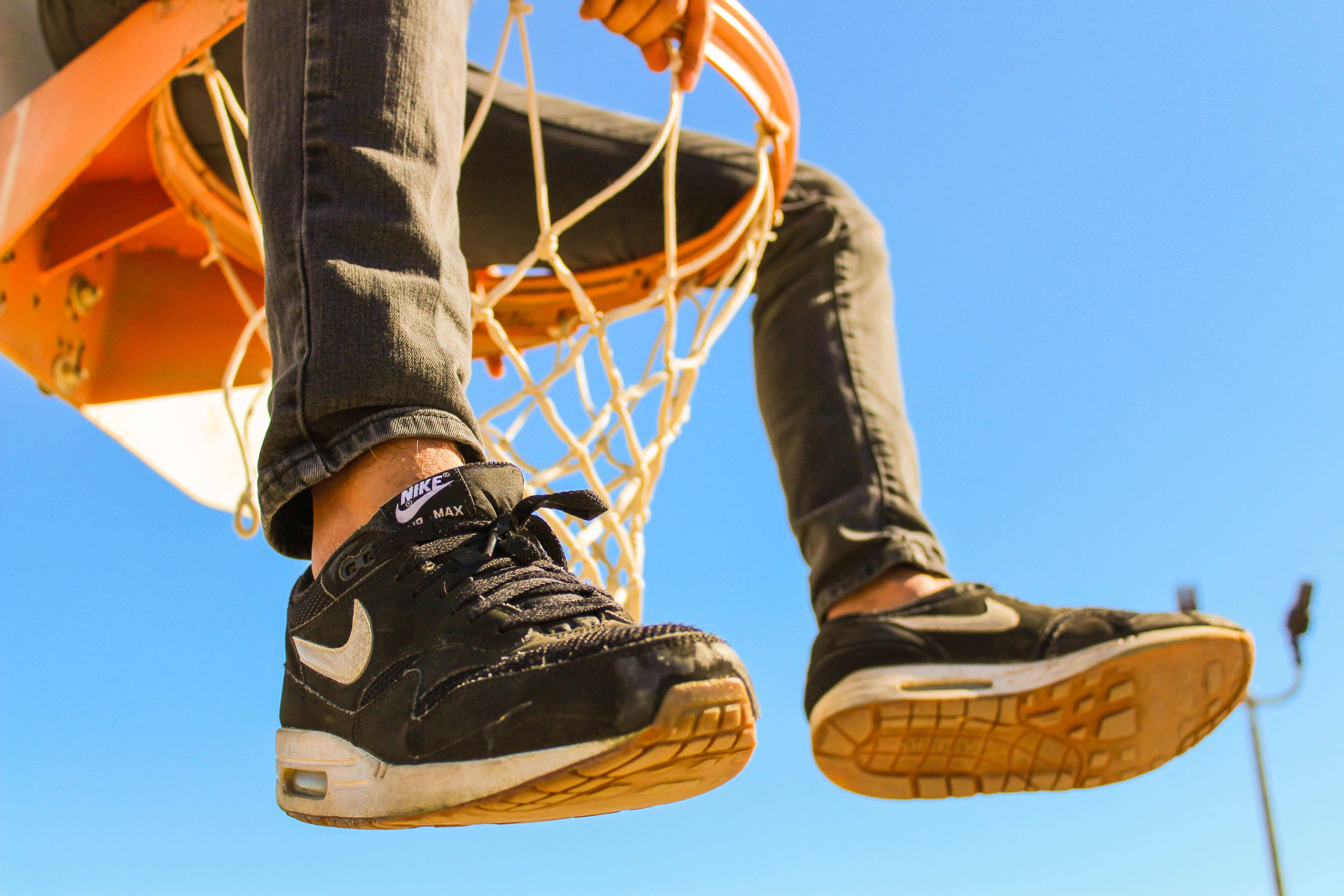The infamous Ray Rice video from 2014 sparked a national conversation that is still going about the relationship between sports and athletes who are abusive off the field. Most of this conversation has been focused on the athletes committing violent offenses, and deservedly so. However, waiting to start this discussion until after athletes have been charged with violent crimes is too late – the tie between athletics and relationship abuse starts much earlier and is much more complex than that.
As a former college athlete who now works for One Love, I’m incredibly passionate about exploring this connection. I’ve seen firsthand not only how the culture of sports can potentially excuse abusive behavior, but also how it can entice athletes to stay in unhealthy or abusive relationships when maybe they wouldn’t have otherwise.
In my opinion, to get at the root of the relationship between athletes and abuse, we need to talk about how the skills we teach young athletes do not always mirror the skills needed for a healthy relationship. When we prioritize behaviors like competition and perfection over skills like active listening and compromise, it not only makes it hard for potential abusers to recognize why their behaviors are unhealthy but also makes it tough for athletes who are in unhealthy or abusive relationships to recognize that these behaviors aren’t okay.
But don’t take my word for it: to explore this further, we asked some college athletes to share their experiences about navigating relationships alongside their identity as an athlete.
Learn the 10 Signs of an Unhealthy Relationship
PRESSURE TO STAY TOGETHER

At One Love, we often talk about the social and cultural pressures we all face to be in the perfect relationship. For elite athletes, this pressure is only exacerbated. Former college athlete, *Jamie, says “A lot of people would assume that because you are an elite athlete, it should be easy for you to find a significant other.”
She continues, “Over the years, I got the question, ‘How does someone like you not have a boyfriend?’ I always felt like that was tied to my status as an athlete.”
If the pressure to be in a relationship is already intense, imagine how difficult it must be to break up with someone when your relationship is tied to your athlete status. If people are counting on your relationship, whether it’s coaches, teammates, or fans, you’re much less likely to leave, even if it is unhealthy. Former college athlete, Rachel N. explains, “I felt like swimming artificially upped the stakes; instead of seeing the relationship for what it was, I doubled down and tried to pretend everything was ok to save face.”
NAVIGATING SPORTS VS. NAVIGATING RELATIONSHIPS
Sports teach us so many important life lessons: tenacity, perseverance, time management, and teamwork, just to name a few. But when your sport becomes your job and claims most of your personal identity, you have to focus almost 24/7 on the mindset and skills necessary for you to excel. We teach athletes from a young age that they will experience adversity at some point in their athletic career.
When you eat, sleep and breath this mindset, you’re bound to be successful in your sport, but does that also apply to healthy relationships? *Jamie doesn’t think it does, she explains, “I found myself wanting to “fix” the other person as if this was just another challenge I could overcome.” However, “there shouldn’t be any feelings of trying to survive or just trying to ‘get through’ a relationship,” she said.
This idea of fixing your partner is not new. Movies, music and romance novels often teach us that love is all about sticking by someone’s side when no one else is there, or that you can save someone by supporting them blindly through all their faults or problematic behaviors. While you can be a huge support to your partner throughout their life, you can never fix all of their problems, or be their only support system. Treating a relationship as another challenge to face is understandable but definitely not healthy.
When athletes aren’t able to fix their relationship like they fix their performance in a game, ending the relationship may feel like a failure too. Former college athlete, Ellen W. says “Hating to lose is celebrated in athletics. Sometimes leaving an unhealthy relationship feels like a loss or a failure. This can make it harder to leave because we have learned to hate ‘losing.”
Related: Let’s Talk About Locker Room Talk
[Insert Sport] Made Me Do It
Another potentially dangerous effect of spending so much time and energy focusing on athletics is the tendency to blame sports for your or your partner’s behavior. Former college athlete, Rachel N. says “I blamed their infidelity on insecurity stemming from a frustrated career. I let it excuse the outbursts of anger. I distracted myself from their intense jealousy of teammates I had a history with, by telling myself it was love.”
To be fair, anxiety around your sport can definitely be a reason that someone feels frustrated or jealous, especially if they’re experiencing hardships, such as:
- an injury
- tough loss
- early retirement
However, blaming the sport for how you or your partner behaves is not enough. In a healthy relationship, both people are able to take full ownership of their actions, whether healthy or unhealthy and recognize the impact that their behaviors have on their partner.
Separating Self-Worth From Sports

So what does all of this mean? Obviously, quitting sports or ignoring the multitude of positive life lessons they bring isn’t the answer. But, an athletes self-worth should not be dependent on how well they do in a sport or how perfect they seem in a relationship. Rachel says, “I think a huge part of what helped me, later on, was realizing my self-worth, and separating that from athletics. I think that once I was able to do that, I felt stronger and able to view relationships through a different lens than I had before.” We asked other athletes to share, in hindsight, what they wish they had learned about relationships before they became college athletes and here’s what they had to say:
“As an athlete, I was obsessed with being my best self, so many aspects of my life I think could be considered selfish. However, I’ve realized this trait is impossible in any healthy relationship. A healthy relationship means not only thinking about yourself (which is still important) but also thinking consciously about your significant other and their feelings too.”
– Sean B.
“All my life, people in very happy, healthy relationships have surrounded me, so I obviously knew what those looked like. However, when I observed unhealthy relationships, or when I found myself caught up in one, I don’t think I knew enough [about unhealthy relationships] to put a stop to it or realize what was happening right from the start.”
– Jamie S.
“I wish that I had been told that it’s ALWAYS okay to take time for yourself; that it isn’t selfish, but is, in fact, the most necessary thing to do. If you can’t take care of yourself, you might miss some pretty jarring things that are right in front of you. You can’t be in a good, healthy relationship if you aren’t taking care of yourself.”
– Rachel N.

As a former athlete, hearing experiences like these are a huge part of what drove me to One Love in the first place. I learned so many incredible life lessons from my experience as a college athlete, and wouldn’t change it if I could. With that said, I recognize that I definitely over-emphasized skills like competition, intensity, and a drive for perfection that did not always translate well to my life outside of swimming. That’s why education around what’s healthy and what’s unhealthy, in all types of relationships (friendships, romantic relationships, team dynamics), is so crucial.
To learn the 10 signs of a healthy relationship, visit www.joinonelove.org.
*Some names have been changed to respect the privacy of the athletes.
Browse by Category

National Minority Mental Health Awareness Month: Addressing Abuse in Minority Communities
July is National Minority Mental Health Awareness Month, and it's an essential time to talk about our relationships and the…
Hope After Abuse: What I Wish I Knew About Relationships In College
As a freshman in college – my first real time…
A Crash Course In Handling Rejection
The spring/summer cusp is an exciting time of year: long…
What Movie Prom Scenes Can Teach Us About Relationships
Prom season is upon us and millions of high school…
Ways We Self-Sabotage In A New Relationship After an Unhealthy One
You did it. You ended your unhealthy relationship. You grieved.…















